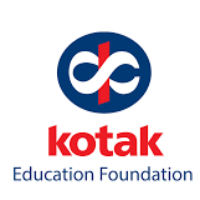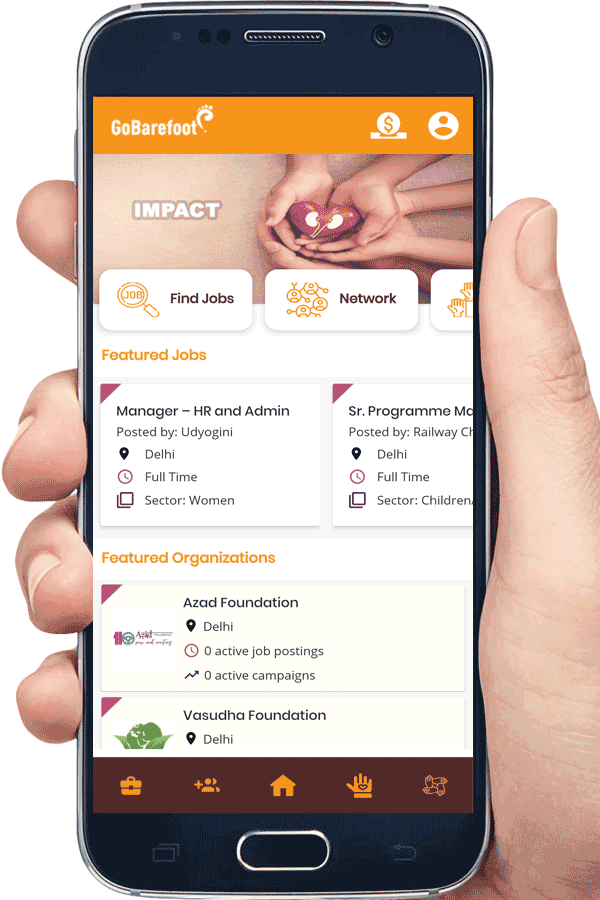External Agency for Conducting Ex Post Quasi- Experimental Evaluation of Spoken English Program
Posted By: Kotak Education Foundation (KEF)
Mumbai
Executive/Staff
Program Implementation
Education
Job Description
1.1 Purpose/Intent of RFP:
The Purpose/Intent of Request for Proposal (RFP) is to external agency for conducting the ex post evaluation of spoken English program by using the quasi- experimental design. The program currently operates in 52 urban schools of M ward of Mumbai in its 5th cycle of operations (each cycle has 3 years of operations).
1.2 Overview of KEF- Kotak Education Foundation: (https://kotakeducation.org/)
Established in 2007, KEF mission is “To support children and youth from underprivileged families through different Education and livelihood based interventions to empower them to rise above poverty line and lead a life with dignity through sustainable processes”.
The Kotak Education Foundation works with some of India's most economically underprivileged communities, attempting to alleviate poverty through education and livelihood programs. KEF currently has 10 different interventions in the 143 urban schools in Mumbai. KEF covers around 32000 beneficiary reach through different intervention during year 21-22 and cumulative reach recorded with more than four Lakhs in the last 15 years of operations.
2. Purpose of Program Evaluation:
Focus of evaluation would be to measure a change in the outcome of interest and provide information or evidence on whether the program has actually made a difference in life of target population. In Umang context, measure the change in spoken English levels of students of grade 6 to 8 in urban schools supported through Umang program by KEF. Followings are key purpose expected to achieve through this evaluation:
- To assess the change in spoken English skills brought about by Umang program across from 2007-2020.
- To assess how the participation in program lead to the completion of college and thereby reduction of college dropout due to English speaking skills.
- To assess the attribution of Umang program in observed changes.
- To document the intended/unintended changes occurred for both students and schools due to program.
- To assess the relevance, efficiency and effectiveness of program.
- To assess the partner schools capacity to continue to address the need of students from disadvantage groups post the Umang has exited.
In addition,
- To better understand the long term changes that have occurred as a result of program and to have recommendations for future program strategies.
- To understand the change achieved justifies the input (cost and resources) of the activities undertaken by program.
- To assess whether there may be more efficient and effective alternatives to achieve the desired changes.
To achieve this evaluation objectives, following questions are expected to respond through proposed program evaluation:
- What has been changed (both observed and unobserved) because of Umang program?
- Which group of students benefited the most from Program AND which groups are least?
- Extent to which program attains its objectives?
- How were the changes brought about through program?
- Extent to which the length of program input (90 hours in annual) is associated with the level of change observed?
- Has the program been effective in building KEF partner schools capacity to sustain the program?
- How significantly these changes are? How they are linked with KEF Mission?
- Was there any unintended change (either positive or negative) from the program?
- Are these changes are likely to sustain? If Yes, in what ways?
The program evaluation will also include the following aspects:
- Program design- How evaluation finding supports the need and relevance of program in current and future context. The evaluation will attempt to answer the questions like- is program sufficiently catering the unmet need of target population, whether the reach to the target population is timely and sufficient, does program need alternative approaches to cater the target population in most efficient way, does the technology adaptation is appropriate means to achieve the program objectives. All such information will be collected by various set of stakeholders ( Teachers, Students, Parents and Program staff)
- Historical Perspective: Program has seen several rounds of alteration and adjustments to accommodate the need of students and schools. This particular exploration would involve the historical review of program input, content, activity delivery, data management and assessment over the years and how the relevance of program maintained in different context (Includes the offline, online, in school and out of school program delivery).
Eligibility Criteria
Not Specified
Desired Candidate Profile
-
Not Specified
Organization Details
- Organization Name:Kotak Education Foundation (KEF)
-
About Organization:The Kotak Education Foundation works with some of India's most economically underprivileged communities, attempting to alleviate poverty through education and livelihood programs. KEF currently has 10 different interventions in the 143 urban schools in Mumbai. KEF covers around 32000 beneficiary reach through different intervention during year 21-22 and cumulative reach recorded with more than four Lakhs in the last 15 years of operations.
Know more


